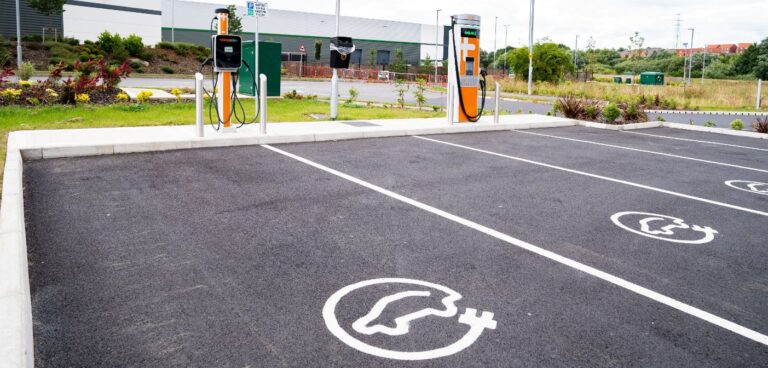The European Parliament has backed electric vehicle (EV) charging targets that, if accepted by national governments, would support drivers to publicly re-charge on every corner in Europe, by 2025 at the latest.
Environmental group Green group Transport & Environment (T&E) has voiced support for the vote in favour of the Alternative Infrastructure Regulation, which would require charging hubs located every 60km (37 miles) along major roads and wide-ranging coverage on minor roads in urban areas.
If the regulation is brought forward, it could support widespread installation in central and eastern Europe, with the Parliament wanting raised charger-per-vehicle targets for countries with low EV take-up.
According to the regulation, in more mature EV markets, countries would be required to provide 1kW of charging per battery electric vehicle on the road, which could be used to gauge how many slow or rapid chargers are needed for a population.
What’s more, drivers would be able to use their bank cards to pay at every public charger in Europe.
Fabian Sperka, vehicles policy manager at T&E, said: “For years anxiety over infrastructure has held back the electrification of road transport.
“This law should calm any fears and ensure that charging will always keep pace with EVs on the road.
“Everyone from manufacturers to hauliers says zero emissions trucks need charging infrastructure to flourish.
“MEPs are heeding their call by backing targets for a comprehensive network of re-charging stations.
“The Parliament needs to stand up for green trucking in negotiations with governments, which only want a fraction of the network.”
Electric trucks would also be provided for under the Parliament’s proposed targets, which outlines that EU countries need to provide 2,000kW in charging capacity for every 60km along the bloc’s main transport routes (TEN-T core network) in 2025. This figure would rise to 5,000kW in 2030.
From 2030 onwards, the targets will apply to the whole of TEN-T road network.
By 2027, the Parliament also wants hydrogen truck refuelling infrastructure equipped for every 100km (62 miles) of road along the TEN-T network.
The environmental group has also called on EU governments to increase its targets.





